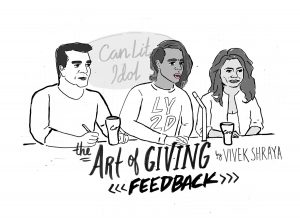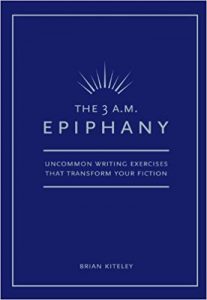Dear TAs,
I’ve been bookmarking links to share on the blog, and here’s one that resurfaced today just before our Craft of Teaching session:
https://ctl.yale.edu/teaching/graduate-student-professional-student-and-postdoctoral-teaching-development
A few relevant excerpts for when those first assignments are being returned to students:
What to Do When Students Challenge Your Grade
A common scenario: you return students’ papers and, after the usual period of sighing and moaning, a student approaches you with the dreaded “I’d like to talk to you about my grade.” What then?
Wait a Minute
The first thing to do is stall for time. No joke. Don’t be pressured into hearing a case and making a decision on the spot. There will probably be other students around, and you might be in a rush to get out of the classroom. Unless the grade change is truly minor and unquestionable, set up another time when you can give the student your full consideration (within a few days, to be fair). Then, before you meet the student, take some time to remind yourself what your grading standards are. Also, if you have the student’s paper available, reconsider how the paper fits those standards (it’s always a good idea to make copies of your comments for future reference).
Another option is to have the student write out his or her side of the story and turn it in with a copy of the exam or paper. That way, you’ll have time to review the case before meeting to discuss it. If the case really is clear-cut and simple, it won’t take long to explain it, and it won’t take you long to make a decision on the merits of the student’s case.
Let students talk during such conferences. In fact, let them talk a lot. Resist the temptation to jump in with your defense. Shouting, “Zip it! You failed!” will only exacerbate the situation. Many students take getting a bad grade very personally, so don’t escalate things by making the grading process personal as well.
Why do students complain about a grade? There are several possibilities.
- The student is embarrassed about getting a low grade and is trying to win your approval as a person, or perhaps trying to show you that she is smarter than the grade reflects.
- The student is genuinely trying to learn how to write better papers or do better on exams.
- The student is trying to figure out how to get a better grade in the future.
- The student is just trying to get a higher grade right now.
Dealing with the last possibility can be frustrating, but don’t assume that that’s the reason when in fact any of the other possibilities might be the case. (We don’t have to tell you what happens when you assume, do we?) Always imagine that your student has higher motives, and aim your conversation at that level. You can always give the student the option of having the supervising professor read and re-evaluate the paper or exam. Just be sure to remind the student that the grade could go down even further.
One last thing: if you allow a student to rewrite a paper, make sure that you allow every student that opportunity. In this case, it can’t be only the squeaky wheel that gets the grease. You gotta grease ’em all.
https://ctl.yale.edu/teaching/teaching-how/chapter-5-grading-and-evaluation/grades-and-grading
Approaches to, and Techniques for, Grading Fairly
Waiting for Godot
As you begin grading a particular assignment or exam question, read through several students’ answers without marking grades. At the very least, restrict yourself to tentative marks in pencil. This will give you a sense of the overall range of students’ responses before you start inscribing final grades in indelible red ink.
…
Take Two
After you finish grading, review the first few assignments you graded. You will often find that you were much nastier with the red ink at the beginning of the grading process than at the end, and you may be pleasantly surprised to find that some of the first assignments you graded made points other students failed to mention. You will also have developed a more refined sense of a “good” as opposed to an “average” or “weak” performance over the course of your grading, and you may realize that the first assignments you read were better (or worse) than you initially thought. For these reasons, you may not want to mark any grades in pen until you’ve finished with the whole set of exams or papers and are happy with the distribution of grades as a whole.
Grade Blind
If you’ve come to know your students well in section or lab, you may have definite expectations, hopes, or fears about their performance on major assignments. In order to avoid being influenced by what you know or anticipate about a student’s work, you might want to keep the grading as anonymous as possible: just fold back the cover sheet of each paper or exam so that you can’t see the student’s name. (If you want to do this with papers, you should make a point of asking students to include their name only on the cover page.)
Grading without regard to students’ identities does not prevent you from commenting on how students’ work has progressed (or degenerated) over the course of the semester. Once the actual assigning of letter grades is complete, you can always go back to your written comments and praise students who have made notable improvements (or caution students who have done the reverse).
And here’s the link to their “Preparing A Lecture” section:
https://ctl.yale.edu/teaching/ideas-teaching/preparing-lecture
Good luck!
Sheryda



